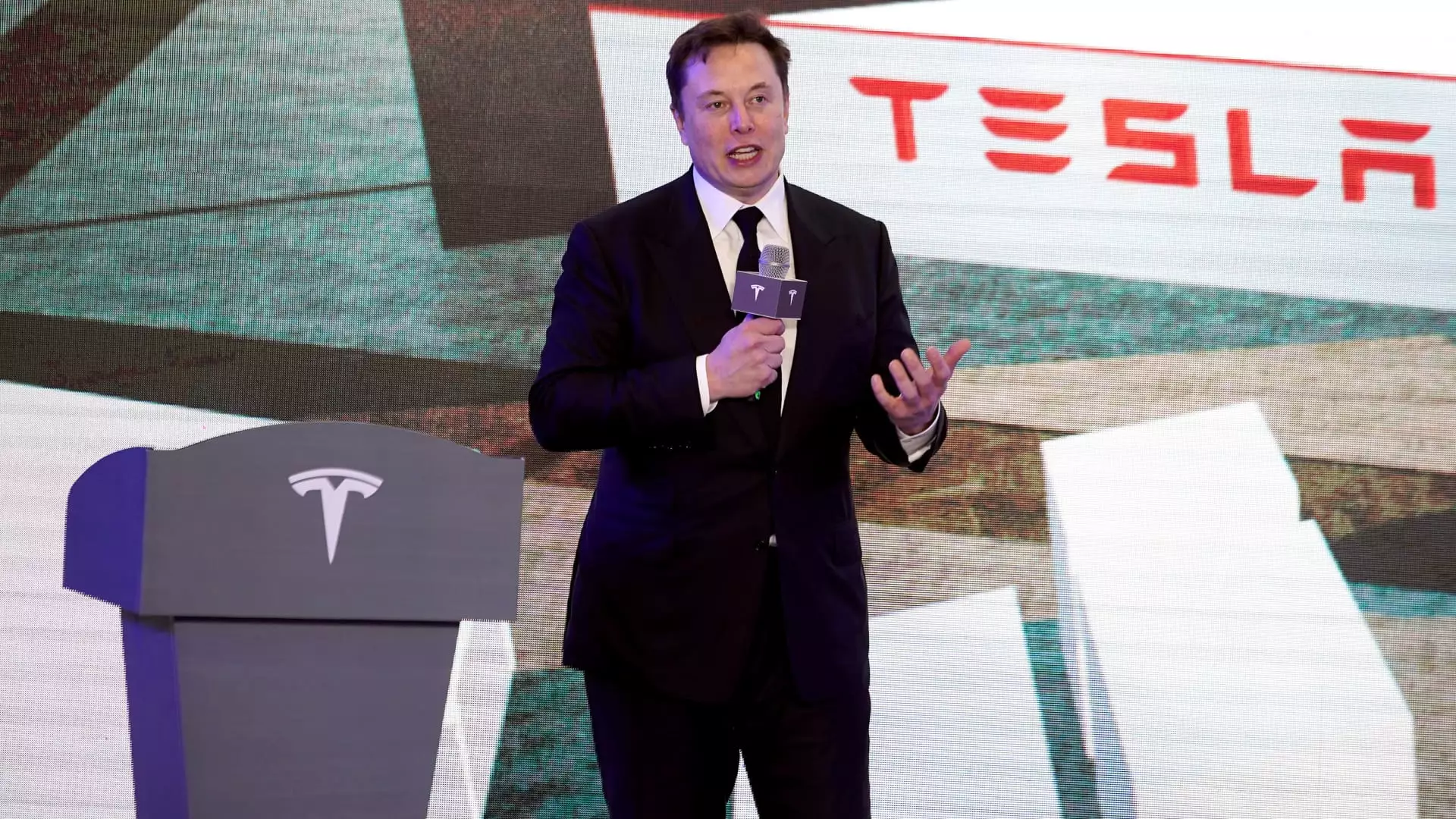In a move that has stirred conversations within corporate governance circles, Tesla, the electric vehicle giant headed by Elon Musk, has altered its corporate bylaws. According to a regulatory filing made recently, this new framework imposes an ownership threshold of 3% for shareholders wishing to pursue legal action over alleged breaches of fiduciary duties by the board or executives. This change, effective from May 15, represents a significant pivot that has sparked a plethora of questions regarding stakeholder rights and the overall corporate landscape.
The implications of this shift are profound, especially considering Tesla’s valuation of over $1 trillion. Holding a 3% stake equates to a staggering investment of more than $30 billion. This financial barrier elevates the threshold for accountability remarkably high, making it challenging for smaller investors to hold executive actions accountable. Critics might argue that this move empowers the leadership at Tesla, effectively reducing oversight from investors who are arguably the backbone of corporate structure.
Navigating the Legal Landscape
Tesla’s move to enforce this new bylaw has raised eyebrows, particularly since it leverages a Texas state law that allows companies to limit shareholder lawsuits against executives for perceived breaches of fiduciary duty. This legal maneuver sets a precedent that can embolden other Texas-based corporations to follow suit, potentially normalizing restrictive measures against investor litigation rights in the wider corporate fabric.
Legal expert Ann Lipton, who specializes in corporate and securities law, has pointed out that the ownership requirement serves as a formidable obstacle for any shareholder considering legal action. The barrier established by the 3% threshold effectively shields the company’s leadership from accountability, particularly in a context where significant stakes are involved. By requiring such a high ownership percentage, Tesla has not merely altered its bylaws; it has restructured its accountability landscape altogether.
The Delaware Debacle and New Beginnings
This move also casts a long shadow over Tesla’s previous incorporation strategy in Delaware. In a notable instance, the Delaware Chancery Court had deemed that CEO Musk’s actions took precedence over the company’s board decisions, leading to a ruling that rescinded Musk’s substantial 2018 compensation package. The ruling was a clear indication that the courts were willing to hold corporate leaders accountable. However, the decision prompted Musk to publicly denounce the Delaware incorporation, leading to a controversial yet strategic business decision to move Tesla’s base of operations to Texas.
This territorial leap raises essential discussions concerning corporate responsibility and governance. By relocating to a state with more favorable laws for corporations, Tesla seems to be proactively limiting liabilities while trying to redefine its corporate culture. Yet, one must question the ethical implications of such decisions. Should a company with considerable public interest, such as Tesla, be allowed to inhibit shareholders from questioning executive misjudgments?
Investors’ Response: Licensed to Oversee or License for Abuse?
As Tesla implements this new policy, it is essential to consider the broader ramifications on investor sentiment and trust. Investors are the lifeblood of any public company, and measures that can be perceived as oppressive may lead to investment hesitancy. Although Musk has cultivated a reputation for innovation and disruption, this alteration to bylaws could potentially alienate smaller shareholders—those that have, in many cases, become vocal advocates for the company and its missions.
What remains to be seen is whether Tesla’s actions will inspire shareholder complacency or foster dissent. Can an empowered executive suite operate effectively in an environment where accountability is curtailed? As Tesla navigates this contentious path, it must carefully weigh the balance between innovation and ethical responsibility. The new bylaws are not merely bureaucratic changes; they shape the dynamic between the boardroom and the shareholders’ seats, challenging the very essence of what it means to run a stakeholder-driven organization.
In an era where corporate transparency is increasingly demanded, implementing such barriers warrants deep examination—both from legal and ethical standpoints. Tesla’s journey underscores the tension between executive power and shareholder rights, reminding us that the future of corporate governance remains as complex and dynamic as the electric vehicles it aims to revolutionize.

